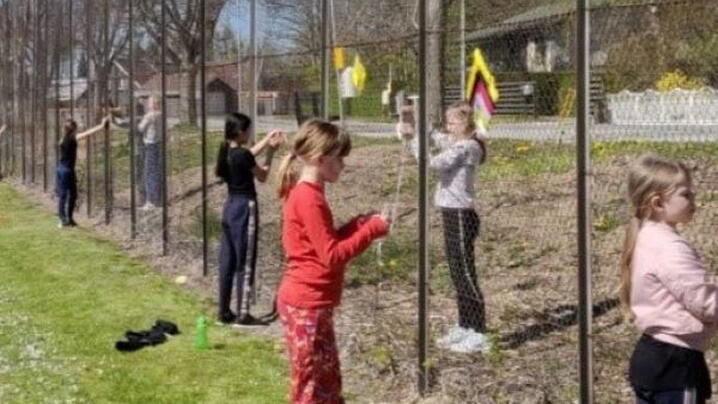
Local governments across the globe continue to respond to COVID-19 and learn from one another along the way. Members and affiliates share how their communities are taking action.
Faxe Municipality, Denmark Reopens Schools, Plans New Infrastructure
Faxe Municipality, located south of Copenhagen, has reopened daycares, primary school grades 0 to 5, and special schools (all ages). The plan to reopen schools starting April 20 in Faxe Municipality was developed in collaboration with area managers, staff, and professional workforce organizations. “To ensure safety…there are extra facilities, and soap dispensers and other disinfectants available in all corners of our units," said Ib Rasmussen, CFO/CIO of Faxe. Larger tents/pavilions are used as alternative outdoor classrooms to ensure there is a minimum of two meters of distance between individuals. Rasmussen added, “Reopening was successful with good cooperation between managers, employees, and unions.”
To support local economies, Danish municipalities will be released from the agreed maximum on municipal investments in 2020. In order to support local companies and workplaces, the city council has advanced capital investment to support employment. Denmark municipalities, including Faxe Municipality, currently have good opportunities to advance planned renovations of buildings, roads, and other structures so that employment can be supported now. The investments can contribute, among other things, to energy renovations of the municipal buildings and other measures that can reduce municipal energy consumption. In addition, municipalities are postponing public payments due from businesses.
According to Rasmussen, “Danish municipalities have not received any extra financial help from the government and have instead used financial tools to change our budget priorities. Faxe Municipality has cut down its municipal budget by three percent. This process calls for good leadership.”
Australia Gradually Reopens with the Help of an App
ICMA Austrailian affiliate LG Professionals Australia reports that their federal government launched a COVID app for people to download on their phones. The app tracks the user via their phone and monitors how long they have been in contact with other people. The app is voluntary and has had over three million downloads as of May 1. The app will alert the user if they have been in contact with someone who had COVID-19 and provides information to health services to test potentially infected people.
Australia is beginning to lessen restrictions on a state-by-state basis. Some states will maintain all their restrictions. However, other states, such as New South Wales, are still reporting new cases but have eased restrictions, allowing families only consisting of two people to visit other’s homes. New South Wales has a plan to reintroduce children to school gradually over the term. At the other extreme, the Northern Territory, which hasn’t reported any reported any new cases for the past two weeks, is reopening playgrounds, pools, some national parks, and non-contact outdoor recreational activities, with limits on wedding and funeral attendance.
India Supports and Promotes Safety for Sanitation Workers
The Urban Management Centre of India (UMC), an ICMA affiliate, has launched a campaign to promote the health and safety of essential sanitation workers and prevent the spread of COVID-19. As part of the promotion, UMC is asking that local governments provide sanitation workers with the proper personal protective equipment (PPE) and to provide handwashing and bathing facilities at transfer stations and waste treatment plants. You can view UMC’s awareness video here.
The City of Ramallah Communicates Its Response Strategy to Residents
The City of Ramallah in Palestine produced an action plan document to keep the public informed of the measures they’re taking to prevent the spread of COVID-19. Practices highlighted include converting hotels to quarantine centers, shifting municipal celebrations like Land Day to at-home events, and using GIS to provide interactive maps and updates for residents. Also included is an executive summary of the overall response plan, detailing each level of government’s responsibilities to make it clear where decisions are made and who enacts them.
The ICMA affiliate in Palestine, the Association of Palestinian Local Authorities, issued a special newsletter highlighting local governments’ efforts to deal with COVID-19 in the country. You can view the newsletter issue here.
Costa Rica Local Governments Call for Taxing Authority
Carlos Loria-Chaves, ICMA economic and governance advisor in the Latin American/Caribbean region, reports that both the National Union of Governments of Costa Rica and the National Association of Mayors of Costa Rica have drafted a law that would allow municipalities to collect taxes. Leaders of both organizations say that local governments have increased the breadth of services provided to their communities during this crisis. Sanitation workers have increased service to ensure high standards of sanitation. Municipal police have safeguarded the community through enforcing national health restrictions. Essential services have been made available online while town halls are closed to the public. In addition, extra services have been provided for vulnerable populations, such as seniors and people suffering from homelessness. The taxing authority would especially help smaller and rural communities, which are held to the same standards as larger cities without the resources to support them.
For additional information, visit ICMA’s Coronavirus Resource page.
New, Reduced Membership Dues
A new, reduced dues rate is available for CAOs/ACAOs, along with additional discounts for those in smaller communities, has been implemented. Learn more and be sure to join or renew today!
